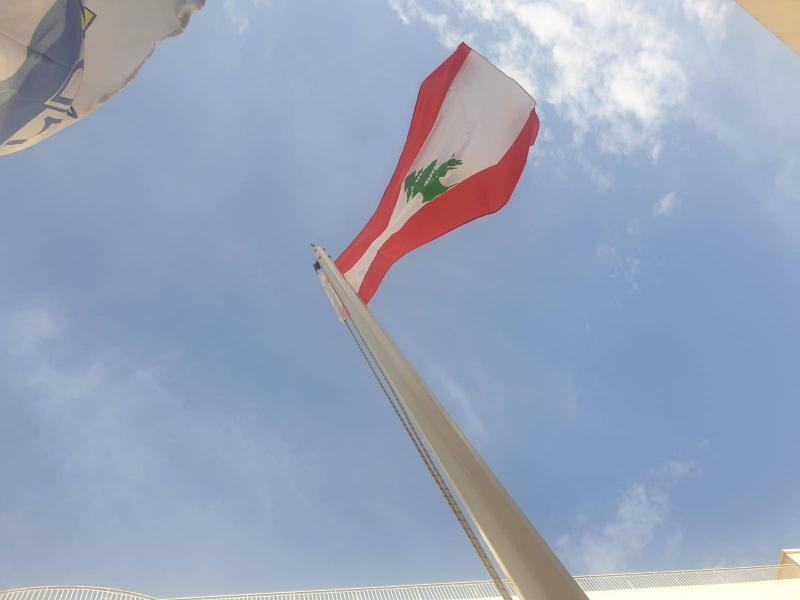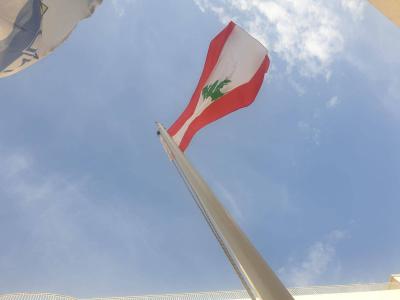The newspaper "Call of the Homeland" wrote: This is a phase of "killing time" marked by injecting the Lebanese vein with painkillers and anesthetic shots to alleviate the symptoms of the country's collapse and keep it in a stable condition on the "deathbed" until the deadline for conducting the "operation" elections on May 15 passes. At that point, either the excision of the "tumors" of the malignant authority from the state's structure will signal the beginning of the recovery and rescue journey... or there will be a "fatal spread" in various parts of the country, whether the date of the "operation" is manipulated or if it is conducted and the "patient" results in a re-emergence of the "toxins" of the same corrupt majority within its parliamentary structure.
In the meantime, the performance of "selling illusions" continues on the stage of those in power, with the latest act being the announcement yesterday of a preliminary agreement with the "employees" of the International Monetary Fund (IMF) on a $3 billion assistance plan, portrayed as "the light starting to shine at the end of the crisis tunnel." However, "facts and experiences" confirm that the commitment made by the authority to implement the required structural reforms in exchange for signing the preliminary agreement with the fund is nothing more than "an April 7 lie," according to financial sources expressing their firm belief in "the impossibility of this authority fulfilling any of the reform commitments stipulated in the agreement, which form the mandatory pathway to proceed toward obtaining the approval of the higher bodies of the IMF for financing Lebanon's rescue program."
While well-informed political sources assert that "all files have been postponed to a phase after the elections, including determining the fate of negotiations with the IMF," they also noted that "the fund's signing of the preliminary agreement (yesterday) with Lebanon came in response to a French desire to revive the chances of reaching a solution to the intractable Lebanese crisis," expressing regret that this agreement "will have counterproductive effects as it will work to revive the authority on the eve of the elections because it will provide them with an electoral investment material 'for free' without actually taking any practical reform steps on the ground, outside the framework of empty promises."
The statement issued following the Baabda Palace meeting included the announcement by the Presidents of the Republic and the Government, Michel Aoun and Najib Mikati, of a "firm commitment to work on solving the crisis and placing Lebanon on a path of sustainable, balanced, and comprehensive growth through the implementation of structural reforms that reinforce the institutional framework, address the primary points of economic and financial imbalance, expand the social safety net to alleviate the impact of the crisis on Lebanese people, especially the most in need, and enhance investment in infrastructure and reconstruction." Aoun and Mikati affirmed their "strong support for the economic reform program that the ministerial committee tasked by the Cabinet is negotiating with the IMF," committing to "work closely to ensure the swift implementation of all measures agreed upon with the fund, including passing the necessary legislation in cooperation with the Parliament, aimed at ensuring the success of this program"
This was followed by House Speaker Nabih Berri issuing a statement announcing his "readiness to accompany this achievement (the preliminary agreement with the IMF) with great diligence in securing the necessary legislations and reforms aimed at ensuring the success of the program supported by the IMF and guaranteeing the deposits of Lebanese citizens and depositors."
With the intention of translating words into actions, international responses welcoming the signing of an agreement at the staff level between the IMF and Lebanon were promptly received, with the European Union considering it "a key step towards a comprehensive economic recovery program based on reform," expressing its readiness to provide support in this regard. The United States also praised "the hard work undertaken by the IMF delegation with the Lebanese government team," adding in a statement: "Lebanon has committed to an ambitious and comprehensive reform program, including the prior executable steps that include reforms in its banking sector, improving transparency, and beginning the path towards debt sustainability." On this basis, the statement emphasized the need to "swiftly pass the required legislations and implement all prior steps," expressing American commitment to "implementing these reforms to realize the agreement with the IMF to help rescue the economy and return it to a sustainable path."
Simultaneously, the Saudi Foreign Ministry announced in the evening its decision to return Ambassador Walid Bukhari to Beirut "in response to calls and appeals from moderate political forces in Lebanon, and affirming what the Lebanese Prime Minister mentioned regarding the Lebanese government's commitment to take the necessary and required actions to enhance cooperation with the Kingdom and the Gulf Cooperation Council member states and halt all political, military, and security activities that affect the Kingdom and the Gulf Cooperation Council member states." It also stressed the "importance of Lebanon's return to its Arab depth represented by its national institutions and apparatuses."
Following this, Prime Minister Mikati expressed his appreciation for the steps taken by Saudi Arabia and Kuwait regarding their ambassadors' return, confirming that "Lebanon prides itself on its Arab identity and is keen on the best relations with the Gulf states that have always been and will remain a support and an ally," while especially thanking Kuwaiti Foreign Minister Sheikh Ahmad Nasser al-Mohammad al-Sabah "for the efforts he made to restore Lebanese-Gulf relations to their clarity and vitality."




